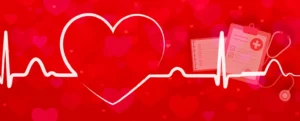Emergency Care for Urgent Situations: Insect Bites
Chances are that most of us, if not all of us, have suffered from an insect bite at one time or the other. The most common insect bites include being bitten by mosquitos, flies, ants, bees, wasps among others. Mosquito bites in particular are quite common, especially during the spring and summer months, when mosquito season is in full gear. In most cases, insect bites are nothing to worry about and at the least you may be a bit irritated with the insect that is biting you, especially that annoying mosquito that can’t seem to want to leave you alone, or the insect bite may cause a mild reaction. Most insect bites, may lead to symptoms such as itching, pain, swelling or redness mostly due to the reaction of the venom or the various chemicals and proteins that may be transferred by the insect inside your body through their saliva as they bite you. In most cases, the reaction may be mild. However, there are instances where an insect bite elicits a severe allergic reaction, which is particularly common in cases of bites by wasps and bees. This should always be taken seriously as a severe allergic reaction can lead to anaphylaxis which is potentially life-threatening and requires immediate emergency medical attention. This article will look to highlight how you should proceed when you find yourself in an urgent situation after suffering an insect bite.
The first thing we are going to highlight are the signs and symptoms of a severe allergic reaction that you should keep an eye out for after an insect bite. They include hives developing on your skin as well as extensive rashes that may be covering the whole of your skin, problems with breathing, a rapid heartbeat, dizziness or confusion, nausea and vomiting, abdominal cramps as well as swelling of your lips, face or throat. If you are experiencing the above symptoms after an insect bite, you should call 911 as soon as possible or have someone do it for if there is someone around you. As you wait for emergency services to arrive, if you are with the person who has suffered the insect bite, you should ask them if they have an epinephrine auto-injector. If they do have it, get it and help them apply or use it, following the instructions articulated on the label. Try to remove the insect sting if it is still in the skin so as to prevent any more venom from being released. You can use an object with a hard edge such as a bank or ATM card to scrape it sideways. You should not use tweezers or pinch the sting with your fingers as this may only serve to spread the venom. You should loosen any tight clothing to ensure that their breathing is not being restricted. If they are vomiting, then you should turn them onto one of their sides so as to allow the vomit to pass ad drain out and as such prevent them from choking. If they are not experiencing vomiting, you should ensure they lie down and have their legs elevated. If they are unconscious, you should begin CPR if you know how to or by following the directions you will be given by the emergency personnel you talk to when calling 911. You should stay with them, assuring them help is on the way and encouraging them to remain calm until the emergency medical help arrives.
Although technically spiders are not insects, they are actually arachnids, it is still important to highlight what you should do in cases where you get bitten by a dangerous spider such as the black widow or brown recluse spiders. The first thing you should do when someone is bitten by any of these spiders is call 911 immediately. As you wait for the emergency services to arrive, you should clean the area where you were bitten with soap and warm water. You should then encourage the person who has been bitten to stay calm and remain as still as possible so as to reduce the spread of the venom. You should not try to cut and suck the venom out or apply a tourniquet, that is tie and apply pressure around the area with the spider bite to restrict blood flow. This will actually do more damage than good contrary to popular belief and should be avoided. You should apply an ice pack or a cold compress to the area with the bite wound to help with the swelling. If it possible, you should take note of the spider including a brief description of some of its features, or you could take a picture of it if it is safe and possible. You will hand over this information to the emergency medical services when they do arrive so as they can know how to proceed with treatment and what anti-venom to look for if required.
The above discussion covers how you should proceed when in an urgent situation as far as an insect bite is concerned and it is our hope that the information provided will be of great help to you if you are ever in such a situation.




